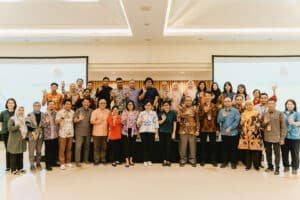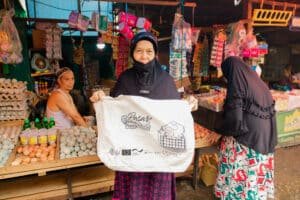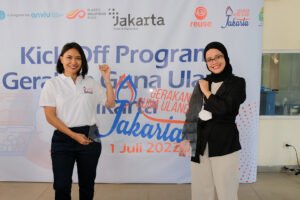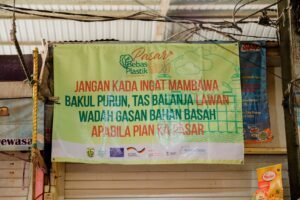Ramadan is a holy month for Muslims, which is marked by fasting for a whole month and ends by celebrating the day of victory on Eid al-Fitr. One of the euphoric moments that is never missed when Ramadan arrives is the moment of breaking the fast.
Breaking the fast is a moment that is eagerly awaited when Ramadan arrives. Breaking the fast with our loved ones and those closest to us is pleasant. Yes! Indeed, the moment of breaking the fast is often identified with a moment full of joy and togetherness,
However, without realizing it, behind these moments of togetherness, we often damage the earth with less environmentally friendly behavior. Not a few of us like to leave food behind when breaking the fast, still, use disposable cutlery, still use disposable food and drink containers, and even throw rubbish carelessly in public places.
GIDKP has several tips for fasting with minimal plastic, DKP friends to get around these behaviors. Want to know the tips? Come on, take a look at some of the reviews below!
1. Break the fast sufficiently
When breaking the fast, we are often carried away by our desire to eat the food served on the dining table immediately. Without thinking twice, we usually take large portions of food, which results in satiety and waste. What a shame.
Therefore, try to break the fast permanently with just enough food and drink. In this way, we can also maintain our digestion while fasting.
2. Avoid using disposable cutlery
“Bukber,” or breaking the fast together, seems to be a tradition that cannot be missed when Ramadan arrives. From a practical perspective, it is not uncommon for us to use disposable cutlery such as spoons, forks, plastic cups, and paper plates. Even though it sounds straightforward and practical, disposable cutlery can cause increased waste generation. Especially during this pandemic, many people may prefer to hold iftar together at home and order food via online motorcycle taxis.
To avoid this, we can use already available cutlery at home. Apart from not creating waste, we can also save money by buying disposable cutlery. More environmentally friendly on the pocket, right?
3. Make your food and drinks to break the fast
Making your food and drinks break the fast sounds very troublesome, but the food and beverages you make yourself are healthier. It can also provide a precious message when you make it together with loved ones. Making your food and drinks also produces less waste than buying instant food, which has to be wrapped in plastic packaging. However, remember, when purchasing food ingredients to cook iftar dishes, forget to use the necessary shopping bags and food containers! Even though making it yourself is healthier and more impressive, remember to make enough DKP friends!
4. Bring your cutlery
If you must break your fast outside the house, bring your eating utensils! Besides not producing plastic waste from plastic cutlery, getting your reusable cutlery can also maintain hygiene. As much as possible, avoid food packaging that uses single-use plastic.
So, it’s straightforward, DKP friends, to minimize waste during Ramadan, right? Let’s make this holy month our reflection to free the earth from rubbish!








